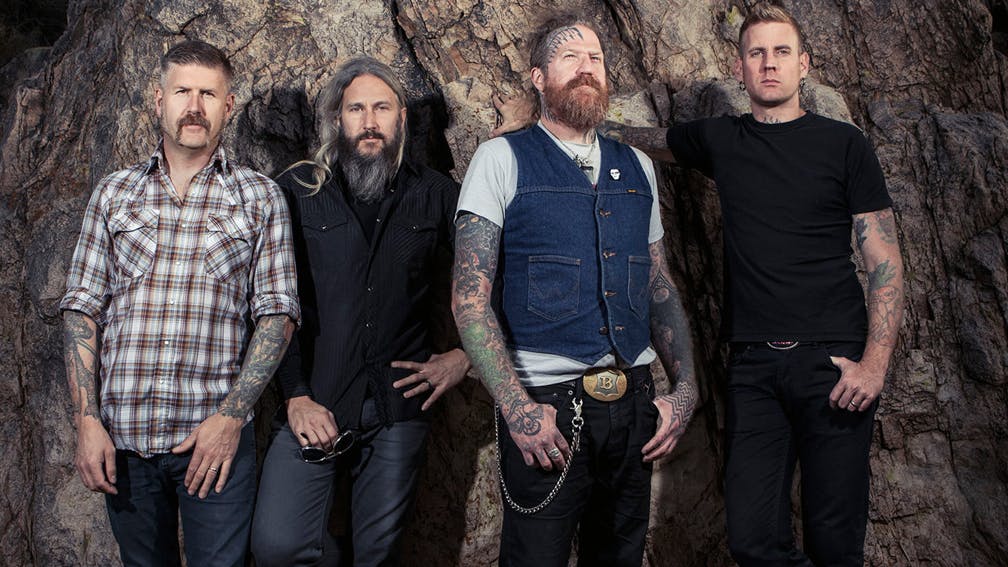Dead ends dropped away. Brann was working the door and doing sound at local club The Star Bar, Bill was rolling burritos, Brent was in construction, while Troy also hustled away.
But Mastodon still practiced five nights a week. Their first show was 500 miles south west at New Orleans’ Dixie Tavern. Their second was at the Cow Haus in Tallahassee. They didn’t play in Atlanta until show three or four. “We’d play dives, basements, VFW halls,” Brann says, recalling their appetite for performance. “We once played in a China Buffet.”
“We were all these lost musicians, all on the same page,” says Bill. “I was, like, 28, without a degree, not knowing what to do with my life. It gave me purpose.”
“There were a lot of red flags, for sure, but I ignored them,” Brann reckons of their helter skelter coming-together. “To me, finding someone unique, special and amazing, who shares your musical soul, is much more important than [peace and quiet]. You could be the worst person on the planet and I’d deal with it for this music that is my whole life.”
Prick the two decades since and memories flood out in a fittingly psychedelic haze. They remember how their 2001 EP Lifesblood was put together to have something to play and sell at early shows. Their 2002 debut LP Remission, meanwhile, was the end product of what Brann describes as a “fast and furious” creativity. He also reminisces about smashing beers, high-fiving and crying as they first listened to the final cut of 2004 breakthrough Leviathan in a truck, parked in front of the Seattle motel where they’d holed up for recording. Bill picks up with the unexpected and “unwanted” affirmation of their first GRAMMY nomination for 2006’s Colony Of Birchmen single, then their first win for 2017 song Sultan’s Curse, and the sheer awe of being asked to perform with boyhood heroes Metallica.
Pressed on why they’ve grown into the definitive metal act of the 21st century, they’re characteristically unpresuming.
“We never took ourselves too seriously,” says Bill. “We had a lot of ambition, but we let things grow organically. We never thought we needed to dress like this or sound like that. We never tried to cater to one kind of audience and always toured with different bands. We understood that the work that we put into it reflected the success that we would get out of it. Be nice to people. Practice a lot. Have great songs. Get in a van and start doing it!”
